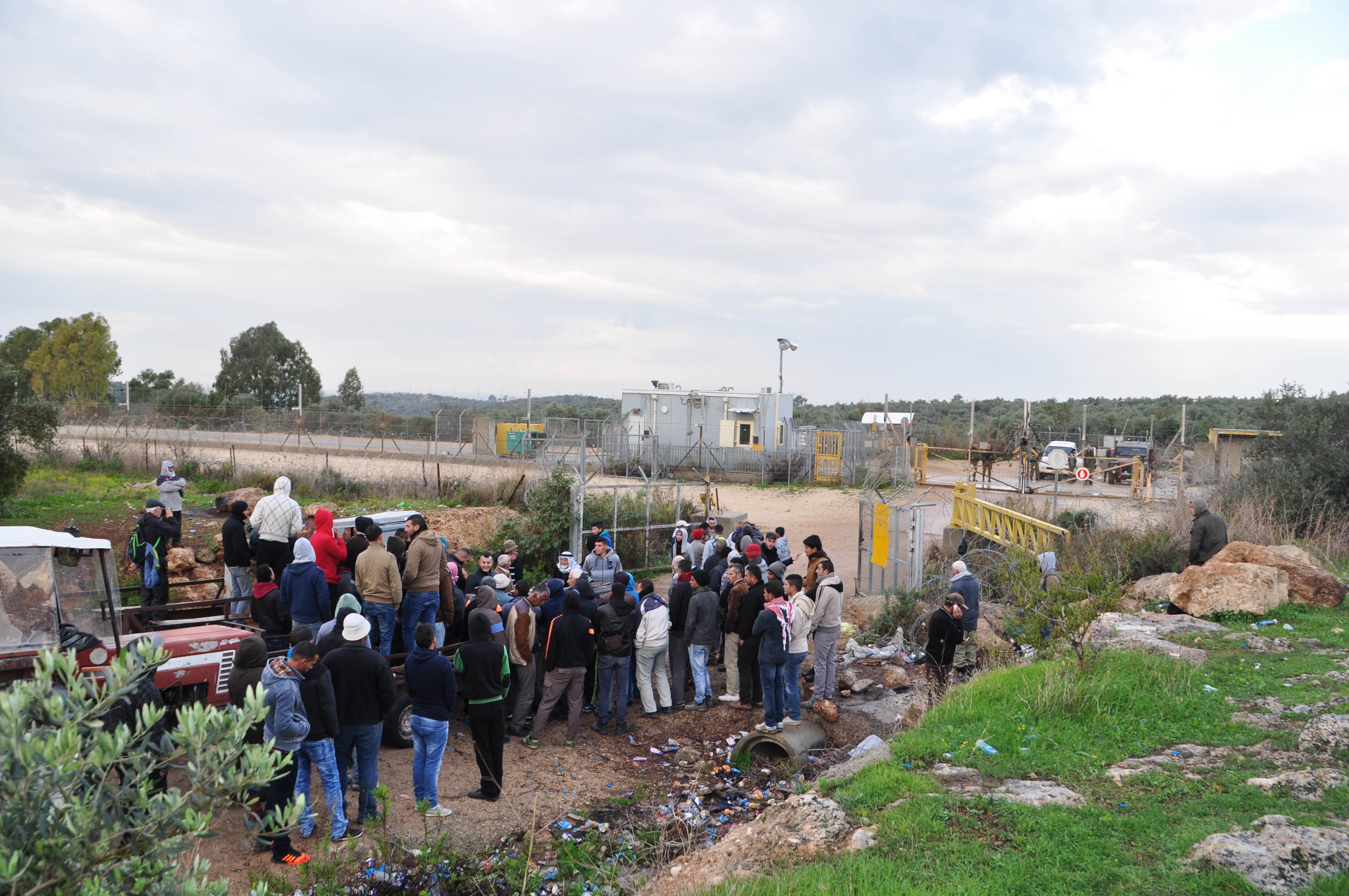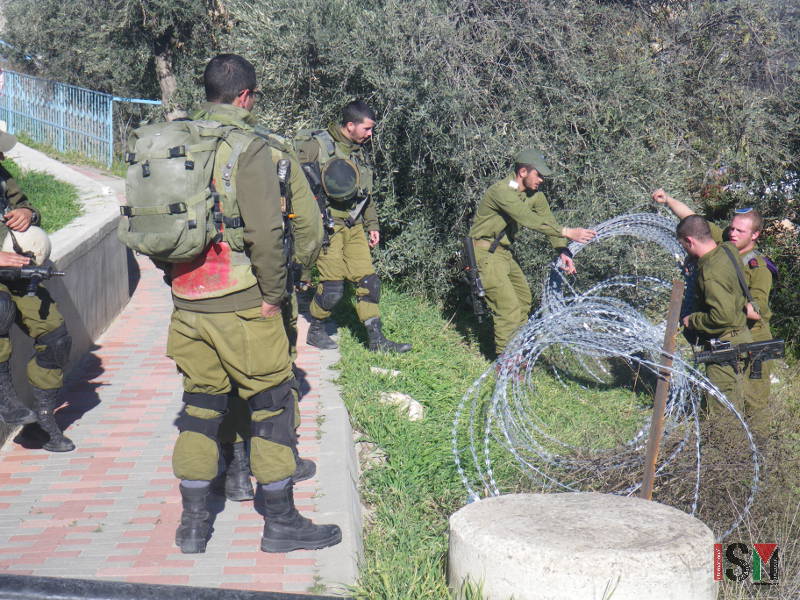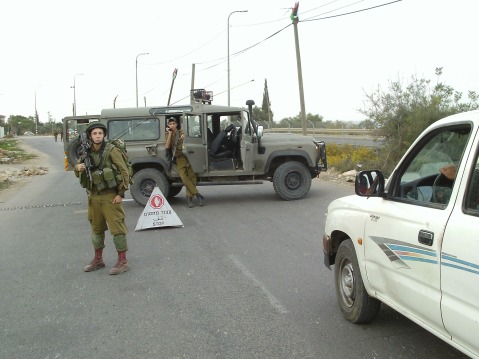Tag: Checkpoint
-
Farmers protest closure of gate blocking them from accessing their land
18th of December, 2015 | International Solidarity Movement, Tulkarm team | Deir al Ghsoon, occupied Palestine Hundreds of farmers protested on the morning of the 18th of December against the closure of an agricultural gate, which led Israeli commanders to agree to reopen the way. In 2002, 3200 dunumns of farmland got cut of from the…
-
School children denied their right to education in Hebron
December 10th, 2015 | International Solidarity Movement, al Khalil team | al Khalil, occupied Palestine Today, on International Human Rights Day, school children as well as teachers were denied access to the Cordoba school in Al-Khalil (Hebron). The mixed primary school is located in the neighborhood of Tel Rumeida at the end of the small strip of…
-
Everyday humiliation of Israeli military occupation
6th of December 2015 | International Solidarity Movement, al-Khalil team | Hebron, occupied Palestine Palestinians living in the Israeli militarily occupied West Bank face discrimination, racism and humiliation at the hands of Israeli forces on an everyday basis. Humiliation is entrenched in every aspect of daily life under the Israeli occupation. The message is clear: as…



